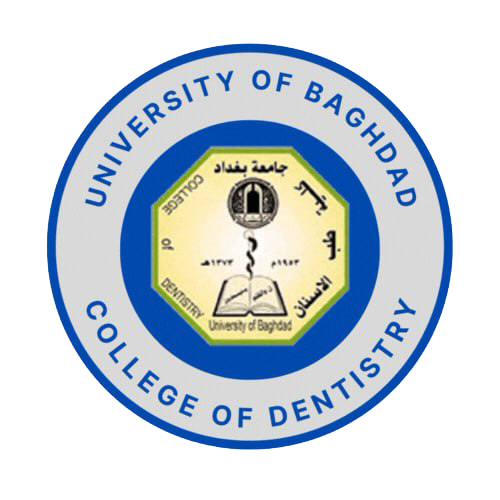Medical and Hazardous Waste Treatment Unit:
This unit administratively reports to the Associate Dean for Scientific Affairs and is responsible for receiving the waste generated in the laboratories, as well as the waste from the educational clinics of the College of Dentistry at the University of Baghdad.
Unit Objectives:
- To protect public health, society, and the environment by raising awareness among students, staff, and faculty members about the importance of classifying the waste produced in all laboratories and educational clinics, preparing for its transfer to the treatment site in accordance with health and environmental regulations, and ensuring public safety.
Unit Operations:
- Conduct workshops and educational lectures for dental assistants, laboratory supervisors, and faculty members on safe handling and sorting of hazardous waste according to international health standards.
- Train staff in the scientific branches and raise their awareness regarding the types of waste, safe transportation, and preventing the mixing of hazardous materials with general waste.
- Increase student awareness, use signage, and provide guidance during practical application on the types of waste and proper sorting methods.
- Maintain ongoing cooperation with the central committee to limit the spread of infections in the college, ensuring safety procedures are followed and safeguarding the health of students, faculty, and staff.
- Collaborate with other dental colleges to raise awareness and adopt similar protocols, as well as coordinate with the Ministry of Health and the Dental Association for scientific workshops and support, raising awareness among colleagues and graduates.
- Provide waste bags with identifying labels and yellow color to distinguish hazardous materials that pose a risk to health and the environment from other materials.
- Provide yellow containers with clear labels through color and text to facilitate sorting at the source.
- Provide large central containers for temporary storage of hazardous waste, preparing it for safe and regular transportation to the treatment site.
Types of Waste Handled by the Unit:
- Educational Laboratory Waste:
- Bacterial growth samples and culture media.
- Samples of serum, blood, and saliva.
- Laboratory materials, stains, and diluted acids used in educational labs.
- Laboratory slides, used syringes, and blood sampling tools.
-
Educational Clinic Waste:
- Contaminated sharp objects with saliva or blood used in various dental treatments, which can cause injury and potentially transmit dangerous diseases. This includes but is not limited to local anesthetic needles, scalpels, surgical threads, as well as dental drilling tools and root canal fillings. To view the materials list, click the link ..\logos for infection cont\sharps materials list.docx.
- Non-sharp contaminated materials containing patient saliva or blood, along with materials used in various dental treatments across different specialties. To view the materials list, click the link ..\logos for infection cont\medical non sharp waste list.docx.
- Toxic materials, including leftover amalgam capsules, which are isolated in special containers due to mercury residues, along with other containers designated for collecting dry batteries, ensuring they are not disposed of with general waste.
